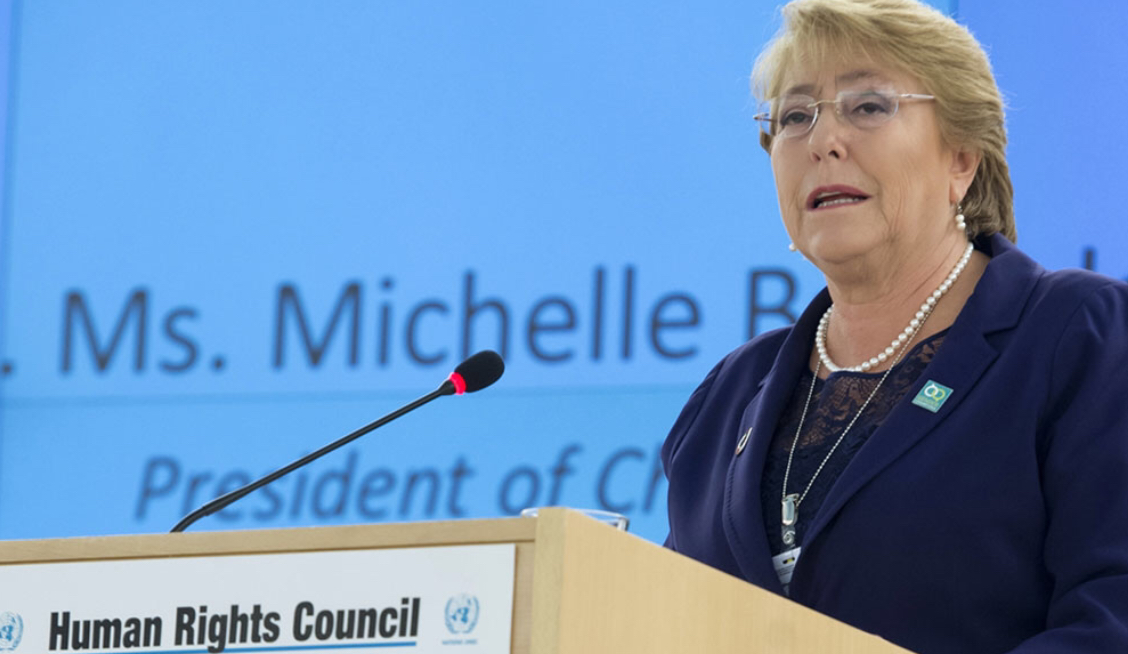UN Human Rights High Commissioner Michelle Bachelet told the Human Rights Council (HRC) of deep concerns about continued reports of surveillance, harassment and intimidation of civil society organisations, human rights defenders and journalists by the police and intelligence services in Sri Lanka.
‘Repeated incidents of deaths in custody and in alleged armed encounters with police are alarming’, she told members of the Council at the start of the interactive dialogue on Sri Lanka on Friday. ‘We also continue to receive allegations of ill-treatment and torture by police and military’.
She said that two years after the government of Sri Lanka made a commitment to the Council, currently meeting in Geneva for its 49th sessions, to pursue an “inclusive, domestically designed and executed reconciliation and accountability process” it has still not produced a credible roadmap on transitional justice towards accountability and reconciliation.
‘I remain concerned by the continued suffering and anguish of victims and families of the disappeared, who call for truth and justice, and seek to commemorate their loved ones. I urge the Government to acknowledge their rights, urgently determine the fate or whereabouts of victims, bring perpetrators to justice and provide reparations. Victims of the 2019 Easter Sunday bombings and religious leaders also continue to call for justice, reparation and a full account of the circumstances of those attacks, in particular the role of the security establishment’.
Days before the Commissioner’s address to the Council she met with Archbishop of Colombo Cardinal Malcom Ranjith Perera in Geneva.
The Commissioner told the Council how the government has not only demonstrated its unwillingness to pursue accountability, but that it has also incorporated military officials implicated in alleged war crimes into its highest levels, reinforcing a narrative of impunity. She said that for these reasons, and to provide some form of redress for victims, she is calling on the Council to pursue alternate strategies to advance accountability at the international level.
The Commissioner told the Council that preparatory work is underway to implement the accountability aspects of Resolution 46/1 which was adopted by it in March last year. ‘Our team will analyse the information that has been consolidated in the evidence repository using a criminal justice perspective, with a view to identifying gaps and priorities for further information collection, and incorporating a victim-centred approach’.
The Commissioner pointed out that the resolution presents an important opportunity to pursue accountability for serious international crimes committed in Sri Lanka.
Continuing her address to the Council, she said that as long as impunity prevails, Sri Lanka will not achieve genuine reconciliation and sustainable peace. (SW)





